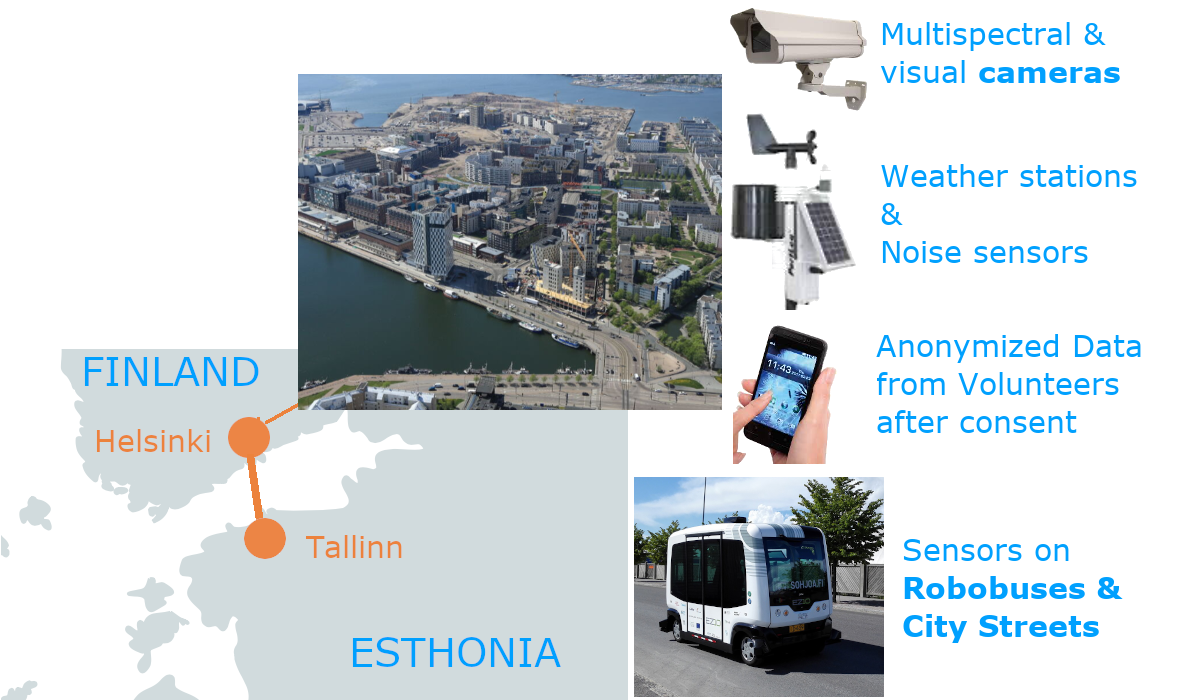When the European Parliament compared 468 European cities, Helsinki was ranked within the top six. Propelled by agile city development policies, Helsinki is planning to stay at the cutting edge in the future: open data platforms, smart grid technologies, networked LED street lights, urban mobility, smart garbage bins, energy efficient buildings, water management up to autonomous buses (Robobus) are among the Helsinki Smart City solutions.
Within IoT-NGIN, we plan to step further towards Mobility as a Service (MaaS) in Twin Smart Cities use cases. The ambition of trial#2 is to adopt an innovative cross-border-by-default twin city context with the city of Helsinki in Finland and the city of Tallinn in Estonia. The use case will be built on top of Finest Twin Cities platform, which facilitates collaboration and open innovation via cities’ common data models for AI data capturing and processing on urban level. Geographically, it will be hosted at the Jätkäsaari Mobility Living Lab, the location of the ferry terminal for commuting ferries between Helsinki and Tallinn, where the number of visitors is doubled during the peak hours, leading to congestion and sub-optimized travel experience. Jätkäsaari is a new residential area with 20.000+ future inhabitants and workplaces for 6000 people, including various hotels and office facilities. It also encompasses the main part of Helsinki’s passenger harbour. However, geographical features and historical development significantly limit connections to the mainland and obstruct traffic in the area.

